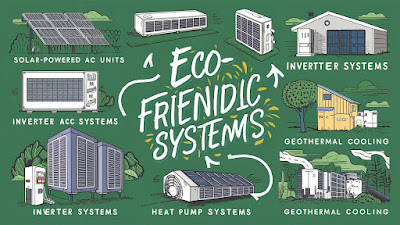Concerns about environmental sustainability have led to the search for more environmentally friendly solutions in several areas, including refrigeration. Eco-friendly refrigeration systems are designed to minimize environmental impact by reducing energy consumption and using less environmentally harmful refrigerants. This article explores the options available on the market for those seeking a more sustainable alternative for refrigeration.
1. Natural Refrigerants:
One of the main innovations in eco-friendly refrigeration systems is the use of natural refrigerants. Substances such as ammonia (NH3), carbon dioxide (CO2) and hydrocarbons (propane and isobutane) are alternatives to synthetic refrigerants that have high global warming potential (GWP). These natural refrigerants are efficient, do not deplete the ozone layer and have a significantly lower environmental impact.
2. Solar Refrigeration Systems:
Solar refrigeration is an increasingly popular option for reducing electricity consumption. These systems use solar energy to power the refrigeration process, either through photovoltaic panels or absorption systems that use the sun's heat directly. In addition to being sustainable, solar refrigeration systems can significantly reduce energy bills, especially in regions with high solar incidence.
3. Energy Efficiency Technologies:
The adoption of technologies that increase the energy efficiency of refrigeration systems is essential for sustainability. Inverter compressors, for example, adjust the speed of the motor according to the refrigeration need, saving energy. Another example is heat recovery systems, which use the waste heat generated during the refrigeration process for other applications, such as water heating.
4. Absorption and Adsorption Refrigeration:
Absorption and adsorption refrigeration systems use heat instead of electricity to perform refrigeration, and are ideal for locations with available waste heat or solar energy. These systems use substances such as water and lithium bromide instead of traditional refrigerant gases, and are highly efficient in terms of energy consumption. These are promising options for reducing the carbon footprint associated with refrigeration.
Green refrigeration systems represent a significant step forward in sustainability, offering alternatives that reduce environmental impact and improve energy efficiency. By considering natural refrigerants, solar cooling, efficient technologies, and absorption and adsorption systems, it is possible to choose solutions that meet refrigeration needs in a sustainable way. Adopting these technologies not only contributes to preserving the environment, but can also generate significant savings in the long term.
